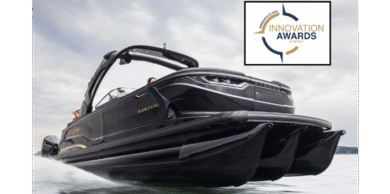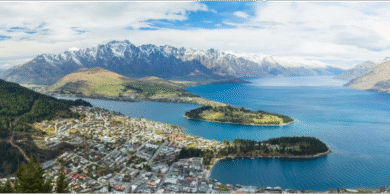Congress advances key water infrastructure measure

This week, the U.S. House of Representatives unanimously approved the 2020 Water Resources Development Act (S. 1811), which includes several recreational boating industry priorities that the National Marine Manufacturers Association (NMMA) recently outlined in a letter to congressional leaders. The legislation – commonly referred to as WRDA – is expected to pass the Senate and be signed into law before the end of the year.
“Investing in our country’s water infrastructure needs will provide significant economic benefits to local and coastal communities and the recreational boating community applauds the U.S. House of Representatives for passing legislation that addresses this critical issue,” said Callie Hoyt, director of federal government relations at the National Marine Manufacturers Association. “The outdoor recreation industry – which counts boating and fishing as the top contributor – has played an important role in aiding our economy throughout the pandemic and the Water Resources Development Act (WRDA) will help continue this trend in the days of recovery ahead.”
WRDA is biennial legislation that authorizes funding for U.S. Army Corps of Engineers projects across the country, including critical recreation-based water infrastructure initiatives. The 2020 WRDA bill address the following NMMA supported policies:
- Unlocks the Harbor Maintenance Trust Fund (HMTF) by providing the authority to appropriate $2 billion in additional funds annually for harbor maintenance needs from the existing balance in the Trust Fund. When combined with a previously enacted provision from the CARES Act, WRDA 2020 will provide for expenditures of approximately $3.5 billion to $4.0 billion in annual expenditures for port maintenance.
- Directs the Secretary of Transportation to equitably allocate harbor maintenance expenditures to pay for U.S. harbor operation and maintenance needs, while addressing the ongoing needs of the nation’s largest donor and energy-transfer ports, Great Lakes harbors, emerging harbors, and commercial strategic seaports.
- Directs the Secretary of Transportation to issue final agency procedures for its Principles, Requirements, and Guidelines (PR&G). The PR&G ensures that future water resources development projects will maximize sustainable development, protect and restore the functions of natural systems, and affordably address the needs of economically disadvantaged communities.
- Allows for the calculation of sea level rise benefits for Corps projects, and requires the Secretary of Transportation to consider, when requested, whether the need for the project is predicated upon or exacerbated by conditions related to sea level rise.
- Renews congressional support for water resources projects that promote the beneficial reuse of sediment by establishing a national policy that recognizes the economic and environmental value in reusing clean dredged materials for ecosystem restoration or storm damage reduction projects.
- Authorizes the Corps to provide technical assistance for resiliency planning, with priority given to economically disadvantaged communities and communities with repetitive flooding.
- Requires the Corps to assess and update the economic and environmental impacts of antiquated projects before they may be carried out.
- Directs the Secretary of Transportation to carry out a demonstration program to assist in detecting, treating, and preventing harmful algal blooms.
- Directs the Secretary of Transportation to update the Corps’ Invasive Species Policy Guidance based on the most recent National Invasive Species Council Management Plan.




